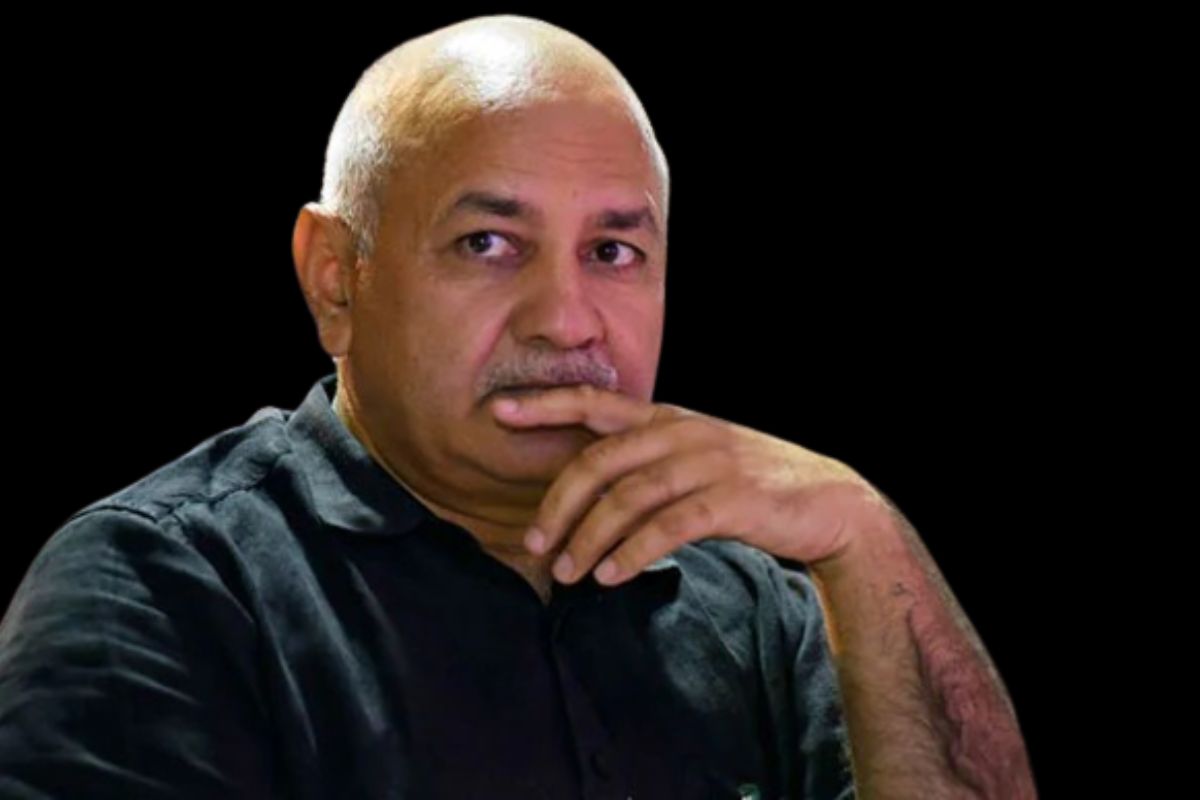
During the bail hearing for Sisodia’s involvement in liquor policy irregularities, Justices Sanjiv Khanna and SVN Bhatti raised inquiries. The court highlighted multiple inconsistencies in the investigations conducted by the CBI and ED and inquired whether there was any evidence of bribery involving Sisodia.

NEW DELHI: On Wednesday, the Supreme Court posed inquiries to authorities regarding the evidence in the cases involving Aam Aadmi Party (AAP) leader Manish Sisodia’s alleged irregularities in the liquor policy and their strategy for establishing money laundering allegations against the former Deputy Chief Minister of Delhi.
During the bail hearing for Sisodia’s involvement in liquor policy irregularities, Justices Sanjiv Khanna and SVN Bhatti raised inquiries. The court highlighted multiple inconsistencies in the investigations conducted by the CBI and ED and inquired whether there was any evidence of bribery involving Sisodia.
The court observed that in order to establish a connection, the investigative agencies must examine whether the money flowed from the liquor lobby to the individual. The court acknowledged the claims concerning money transfers to Goa and highlighted that Sisodia did not possess the money; it was in someone else’s possession. Moreover, the acquisition and utilisation of the money were attributed to someone other than Sisodia.
Acknowledging the discussions within the South Group, the Supreme Court commented that Manish Sisodia is not implicated in these matters. The Supreme Court further remarked that while Vijay Nair is associated with this, Manish Sisodia is not connected to this particular aspect.
The top court inquired about the agency’s plan to implicate Sisodia under the Money Laundering Act, emphasising that it recognises that the money is not being directed towards him. The Supreme Court sought an explanation from the Enforcement Directorate (ED) on how they intend to establish the factual and legal basis for money laundering by Sisodia.
Also Read: BJP alleges documents implicate senior figure; AAP decries ‘conspiracy,’ asks: Are they running ED?
Additional Solicitor General SV Raju, representing Sisodia, stated that Sisodia plays a key role in the generation of funds. The court pointed out that the Prevention of Money Laundering Act (PMLA) comes into play when the proceeds of the crime are transferred or disbursed. The court emphasised the necessity of establishing a direct or indirect connection between the person in question and the proceeds of the crimes.
The court additionally remarked that if there is no monetary consideration involved, it would not constitute an offense even if it is alleged that the policy was discriminatory. ASG SV Raju, representing the CBI and ED, argued that the probe agency’s case is centred on the notion that the liquor policy was deliberately structured to favour wholesalers who made substantial payments.
ASG SV Raju has presented to the court the distinctions between the previous and the updated excise policies, alleging that the policy was revised with the intention of designating specific individuals as wholesalers. Representing the investigative agencies, ASG Raju informed the Supreme Court that the policy was crafted with the aim of favouring certain people.
In the course of the hearing, Senior Advocate Abhishek Manu Singhvi, representing Sisodia, presented a chart to the court containing information about the number of people arrested in the case. The chart also provided specifics about those who were granted bail, and the dates on which bail was approved, among other details.
He also informed the Supreme Court about media coverage of the court hearing from the previous day, during which the court inquired why the AAP has not been implicated. ASG SV Raju informed the Apex Court that he had been questioned by the media, and in response, he stated that if there is evidence, no one will be exempt from investigation.
The Supreme Court clarified that its inquiry from the previous day was not intended to accuse anyone. Instead, it was a legal query about whether, in a situation where someone is accused and another person benefits, the beneficiary cannot be subject to prosecution in the matter. The Supreme Court also acknowledged the statement made by the accused-turned-approver and questioned whether it constituted hearsay.
The Supreme Court noted that in the trial court, the case could become contentious when the defence attorney raises doubts about the evidence by posing two questions during cross-examination. These observations were made when the agency’s lawyer presented evidence suggesting that Vijay Nair was purportedly considered an associate of Sisodia. As the hearing did not reach a conclusion today, the court scheduled the matter for further deliberation on October 12.
Manish Sisodia has filed a bail application with the Supreme Court in cases brought forth by the CBI and ED regarding alleged discrepancies in the Delhi Excise Policy. He is contesting the decision of the Delhi High Court, which denied his previous bail request.
The Delhi High Court rejected his bail petitions in both cases. In its ruling dated July 3, 2023, in the ED case, the Delhi High Court expressed the opinion that, among other factors, considering the accused’s prominent political roles and his position within the ruling party in Delhi, the potential to influence witnesses cannot be disregarded.
In February 2023, Sisodia was apprehended by the CBI on charges of purported discrepancies in the formulation and execution of Delhi’s revised excise policy. The policy was withdrawn due to accusations of wrongdoing by the Opposition. Currently, he is in legal detention.
As per the CBI, Sisodia held a central and crucial position in the criminal conspiracy, and he was extensively engaged in both devising and executing the mentioned policy to ensure the fulfilment of the conspiracy’s objectives.